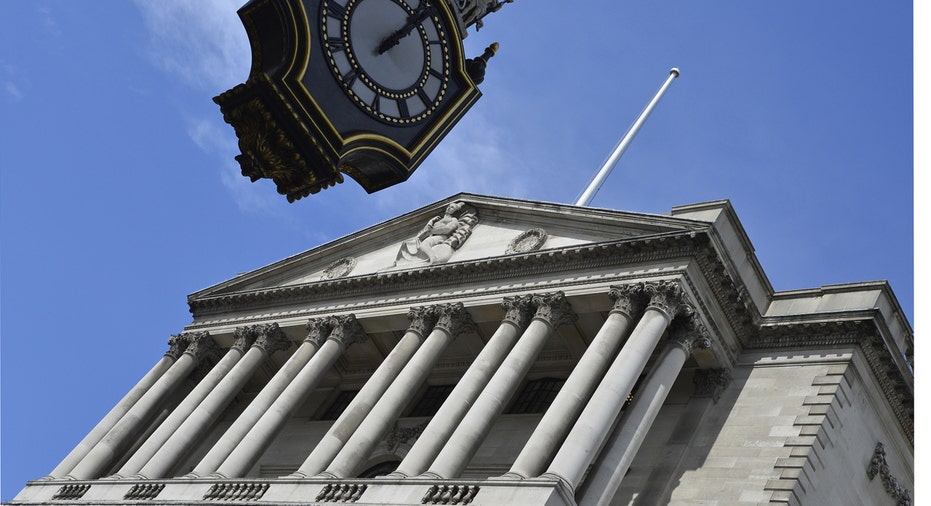Bank of England Leaves Key Interest Rate Unchanged

The Bank of England kept its benchmark interest rate steady Thursday, amid signs of a slowdown both at home and overseas. The BOE said that a majority of officials on the nine-member rate-setting Monetary Policy Committee voted to keep the central bank's main interest rate at 0.5% at their meeting ended Oct. 6, judging that the current policy stance would help fuel growth and lift annual inflation back toward its 2% target over the next two years. Annual inflation was zero in August, and the BOE said it expects price-growth to pick up in 2016 but remain below 1% until the spring. Minutes of the committee's deliberations showed that eight members of the nine-member panel voted to leave the BOE's benchmark interest rate at 0.5%, with Ian McCafferty the sole dissenter. Mr. McCafferty argued for an immediate rise in the BOE's benchmark rate to 0.75% to keep future inflation in check. The panel voted unanimously to maintain the size of the BOE's bond portfolio, amassed during a three-year stimulus push known as quantitative easing, at GBP375 billion ($571 billion). The central bank's decision comes amid signs the British economy slowed in the third quarter after a healthy expansion in the first half of the year. A closely watched gauge of activity in the services sector, which accounts for more than three-quarters of annual output, weakened in August to its lowest level since 2013. U.K. manufacturing, meanwhile, has been hit by a strong pound and a broader global slowdown, both of which have hurt demand for British goods and services overseas. According to the minutes, officials concluded the data are consistent with a "gentle deceleration" in U.K. growth as the recovery matures, but that overall the domestic economy remains resilient. BOE Governor Mark Carney has said he believes that officials will get a better sense of when to begin raising interest rates for the first time since 2007 around the turn of the year. Officials' most recent forecasts suggest the BOE will start gently increasing borrowing costs in the first half of next year. Yet investors in financial markets are doubtful the central bank will move so soon. The interest rate on derivatives that hug the BOE's benchmark suggest Mr. Carney and his colleagues won't begin tightening policy until the end of 2016, or even early 2017. Similar doubts surround the timing of a likely move on rates by the Federal Reserve, even though Fed Chairwoman Janet Yellen said in a speech last month that she expects the U.S. central bank will begin to raise short-term interest rates later this year. The minutes published Thursday also record officials' concern about a possible slowdown overseas and its potential impact on the U.K. The International Monetary Fund on Tuesday downgraded its growth estimates for this year and next, warning that a downturn in China and other emerging markets has heightened the risk the global economy will end up in recession in 2016. The MPC noted in October that "a deterioration in the global demand environment would slow the pace of expansion" in the U.K. further, according to the minutes. Write to Jason Douglas at jason.douglas@wsj.com and Jon Sindreu at jon.sindreu@wsj.com



















